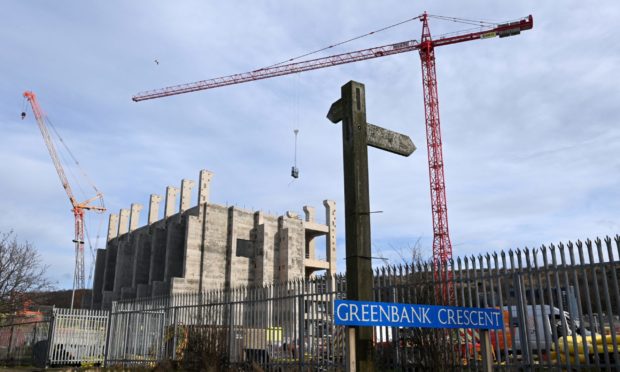Plans to pipe low cost, low carbon heat to hundreds of homes in one of Aberdeen’s most deprived areas could soon be a step closer to reality.
The city council plans to connect hundreds of its homes and other building in Torry to a new heat network, fuelled by the Ness energy from waste plant being built in East Tullos.
After more than five years developing the idea, the local authority is now offering up to £30 million to a company able to design and build the new district heating network.
It is the first time a price tag has been put on the project, which will result in existing gas boilers being removed from properties to be replaced by hydraulic systems which work with the heat source.
Currently, there are 146 homes in three Torry high rises already connected to a smaller heat grid, in Morven Court, Brimmond Court and Grampian Court.
Another three public buildings, the Deeside Family Centre, Provost Hogg Court and Balnagask House have also been hooked in.
This latest work would include those homes and piping in around another 150 in Balnagask Circle, Balnagask Court and Farquhar Road, as well as Torry School and Torry social work office.
Heat will be provided from the energy from waste site only when the plant is operating.
More than a mile of pipes is expected to be installed as part of the new work.
Council co-leader Douglas Lumsden: “We have invited expression of interest from skilled contractors to deliver our new district heating framework as part of the tender process.
“This framework will give us the opportunity to respond quickly to future funding opportunities from the UK Government and others who are making funding available as part of the transition to low carbon energy systems.
“Providing affordable heating in a way that protects the climate is part of our energy transition agenda as a council.”
The Scottish Government has already committed money towards the project through the low carbon infrastructure programme.
Back in October, councillors agreed to take on the funding, to start squirrelling any unspent funding away for the project as well.
Design and construction of a heat distribution facility, containing controls, valves, tanks and back-up boilers, in the former waste transfer station next to the Ness energy from waste plant in Greenbank Crescent is also part of the work.
The £150m incinerator, which will burn up to 150,000 tonne of non-recyclable waste from the city, Aberdeenshire and Moray every year to generate electricity, is expected to be built by the end of 2022.
The council is still working on a 20-year agreement with future operator of the incinerator, Indaver, to secure the heat supply for the expanded Torry heat network from the beginning of 2023.
While the heat network will be fed by the energy from waste plant, the two construction projects are being treated separately.
SNP Torry councillor Audrey Nicoll: “In addition to tackling the very real issue of fuel poverty, developing community heat networks contributes to tackling climate change and can assist in decarbonising our heat supplies.
“Scotland is the first country in the UK to pass legislation to support the growth of heat networks so I’ll be following developments of the local district heating framework with great interest given the importance of affordable energy options to Torry residents.”
Once the heat network is designed and built, the council will launch a further search for a company to operate and maintain the new facilities.
